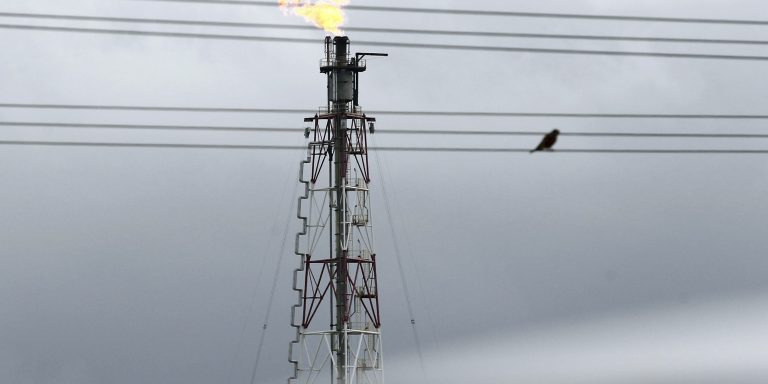
Algeria is a potentially significant contributor to U.S. efforts to ensure that Europe does not experience a major shortage in natural gas supply as a result of the Ukraine crisis.
Algeria would not, by itself, be able to fully compensate for a shutoff of Russian gas supplies to Europe, though its supply could address some of the potential need.
Since nationwide protests forced longtime president Abdelaziz Bouteflika to step down in 2019, Algeria has continued to experience unrest and questions about leadership legitimacy.
Algeria’s foreign policy is still reeling from the Trump administration’s decision in late 2020 to recognize Morocco’s claim of sovereignty over Western Sahara, as well as ongoing instability in Libya.
A key component of the U.S.-led effort to deter Russia from invading Ukraine is to arrange for additional gas supplies to Europe, anticipating that Russia might retaliate against global sanctions by reducing or cutting off gas supplies to European Union (EU) countries. Russia is Europe’s largest gas supplier by a wide margin and ceasing those exports would almost certainly cause severe shortages unless additional supplies are available to be routed to Europe.
In statements related to the Ukraine crisis, U.S. officials have stated that they are talking with several leaders to ensure “the stability of global energy supplies.” Countries in a position to assist in a significant way include those, such as Qatar and Algeria, that could potentially re-route existing gas supplies or add gas volumes to those they already deliver to Europe. Algeria is already the EU’s third largest gas provider (behind Russia and Norway), supplying approximately 8% of the EU’s gas supplies in 2021 via pipelines across the Mediterranean Sea. Algeria also has a liquefied natural gas (LNG) terminal to export gas via ship. The state-owned oil and gas company Sonatrach has completed several new gas projects over the last few years and has spare production and pipeline capacity it could tap to increase exports to the continent, if it chose to do so. Some incrementally added exports to Europe could go through a recent expansion of the Medgaz pipeline to Spain, for example, according to Algerian officials. However, Algeria could not, by itself, offset a complete shutdown of Russian deliveries.
Most other major gas exporters are less well-positioned than Algeria to help ease a European gas crunch. Libya—already struggling to supply its term customers amid political instability and a presidential election delayed beyond its December 24, 2021 planned date—has no additional gas export capacity. Egypt has reached its LNG export volume limit. The United States is already shipping record cargoes to Europe. Qatar could re-route some supplies to Europe, but only if its long term contract customers in Asia were willing to accept temporary reductions in deliveries. Norway could provide the biggest boost for Europe, according to industry sources, which leaves Algeria as the second largest source of incremental volumes for EU countries in the event of a Russian cutoff.
Even though it has spare capacity to export gas, Algerian politics and its regional policies could hinder its ability to scale up its exports. President Abdelmadjid Tebboune—the successor to Abdelaziz Bouteflika, who was president from 1999 until a popular uprising in 2019 forced him out—faces domestic opposition and unrest. Bouteflika presided over a period of relative stability following years of upheaval from a near civil war with Islamist insurgents who later spawned a North African affiliate of al-Qaeda (al-Qaeda in the Islamic Maghreb, a.k.a. AQIM). However, the rule of the ailing leader became progressively more repressive, sparking the popular backlash that toppled him. Tebboune, backed by a shadowy cadre of military leaders and other elites, has failed to implement promised reforms and instead has replicated Bouteflika-era repression of those calling for government accountability and democratization. Unrest has not directly affected Algeria’s gas export sector or its pursuit of new energy projects, but the government has committed to maintain high levels of subsidies to avoid further social unrest. It currently subsidizes almost everything from basic foodstuffs to housing, medicine, and fuel. The regime might fear that helping alleviate a European gas shortage would leave it vulnerable to public accusations that it is diverting resources away from domestic economic needs—which include gas that is consumed domestically—to serve U.S. and other global interests.
The Algerian government has demonstrated its willingness to sometimes weigh regional politics more heavily than its interests as a gas exporter. Algeria strongly opposed the Trump administration’s decision in December 2020 to recognize Morocco’s claim of sovereignty over Western Sahara—a reciprocation for Morocco’s agreement to join several Gulf states (United Arab Emirates and Bahrain) in normalizing relations with Israel. Algeria supports the Polisario Front, which seeks independence for the disputed territory. The U.S. decision on Western Sahara, not reversed by the Biden administration, still roils U.S.-Algeria relations and contributed to Algeria’s breaking formal diplomatic relations with Morocco in August 2021.
In October, Algeria terminated a contract under which it ships gas to Spain via a pipeline running through Morocco. That line would almost certainly need to be reopened if Algeria were to contribute significantly to alleviating a cutoff of Russian gas supplies to Europe. Algiers has also been at odds with Washington on neighboring Libya and on Syria. Algeria opposed the NATO-led military action that helped overthrow the regime of Muammar Qadhafi, although more recently it has supported U.N.-backed reconciliation efforts centering on a presidential election postponed from December 24, 2021. Algeria also maintains relations with the Assad regime in Syria despite Washington’s efforts to prevent broad reintegration of Assad into the Arab fold. Algerian leaders are likely to try to exchange any pledges of additional gas supplies to Europe for U.S. and regional concessions on issues of direct strategic interest to Algiers, while remaining attentive to any public backlash over an Algerian role in the Ukraine crisis.
